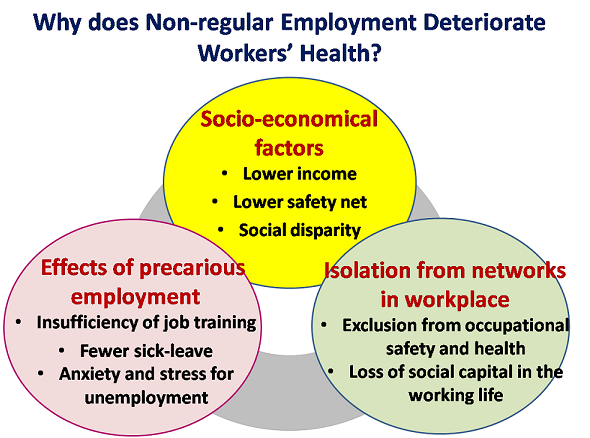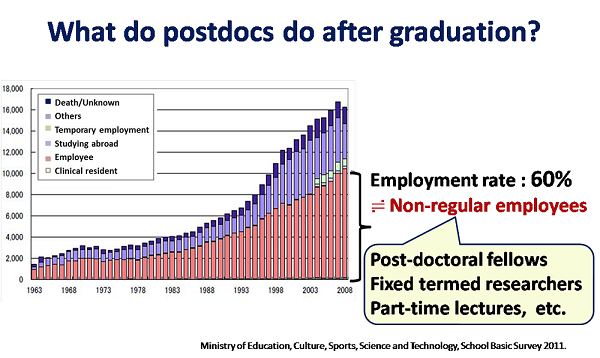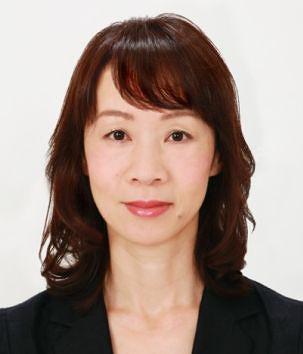March 2017 Issue
Topics
Insights into the health of non-regular workers in Japan
Shinobu Tsurugano MD., PhD.
Associate Professor, Health Care Center, University of Electro-Communications, Tokyo.
Shinobu Tsurugano is the occupational health physician at the UEC Health Care Center responsible for monitoring the health of staff and students at UEC. Tsurugano graduated from Miyazaki Medical School in Kyushu, and specializes in clinical psychosomatic medicine. Her research covers preventative and industrial medicine with the current focus being the health of non-regular employees in Japan.
"The main aim of my current research activities is to increase the 'visibility' of the health conditions of non-regular workers in Japan," says Tsurugano. "Namely, to clarify the effect of non-regular employment on the health of employees in Japan, where according to government figures published in 2013, approximately 21 % of men and 55% of women were non-regular employees--that is not permanently employed." This research is based on analysis of statistics published by government agencies including the Ministry of Health, Labour and Welfare.
Notable findings
Statistics up to 2010 for Japan show that approximately 52% of all researchers in academia are non-regular employees including post-docs, fixed term contract researchers, and part-time lectures. "Analysis of a survey by the Union of University part-time Lectures indicated even people with high academic qualifications felt stress due to uncertainties about their future as non-regular university employees," explains Tsurugano.
Women working as part-timers were less affected by stress than men. "We think that this is because many of the women choose to work part time or as non-regular workers, but men do not," says Tsurugano.
Tsurugano says the health of non-regular workers-both male and female-still requires much more research. "My goal as a medical doctor specializing in industrial health and working in academia is to support scientists and engineers cope with stress and other issues related with their working conditions."
- Non-regular workers and their health among women in Japan, Mariko Inoue, Mariko Nishikitani, Shinobu Tsurugano , Industrial Health, 54, (2016)
- Full-time workers with precarious employment face lower protection for receiving annual health check-ups, Inoue M, Tsurugano S, Nishikitani M, Yano E, Am J Ind Med. 55, 884, (2012).
- Job stress strengthens the link between metabolic risk factors and renal dysfunction in adult men, Tsurugano S, Nakao M, Nomura K, Takeuchi T, Yano E Tohoku, J Exp Med. 226/ 2, 101, (2012).
- Effect of social inequality on workers' health in a Japanese national survey, Nishikitani M, Tsurugano S, Inoue M , Yano E, Soc Sci Med. 75/ 3, 439, (2012).
- Precarious employment and health: analysis of the comprehensive national survey in Japan, Tsurugano S, Inoue M, Yano E., Ind Med. 50/ 3, 223 (2012).





